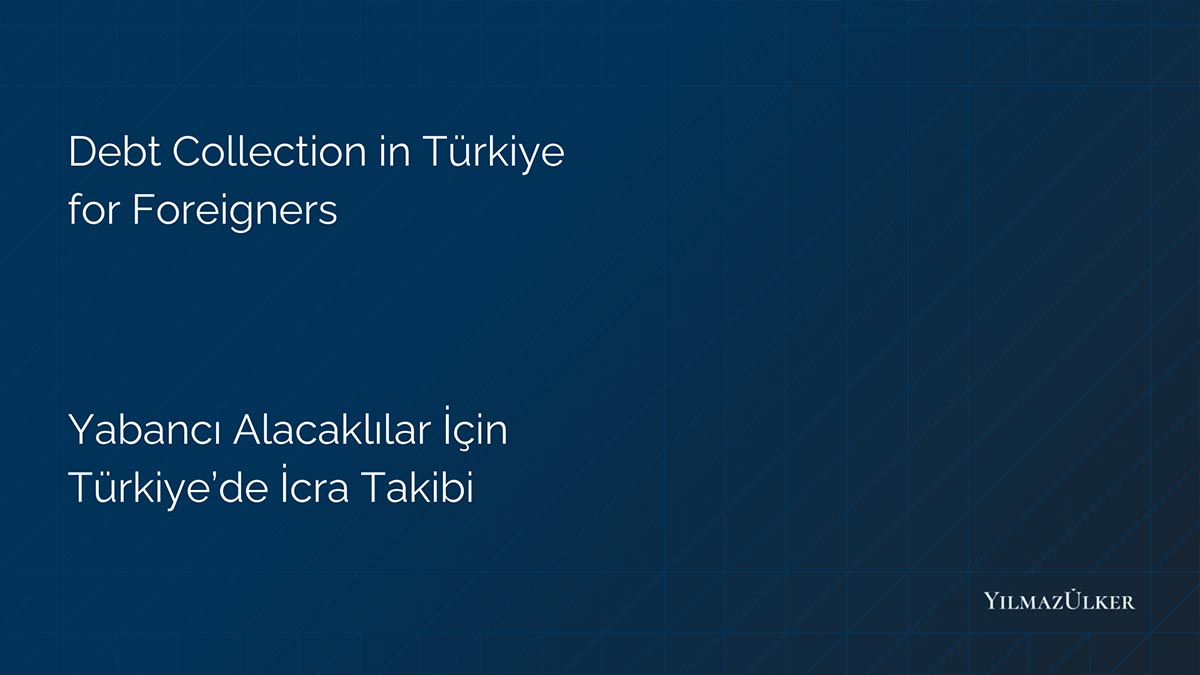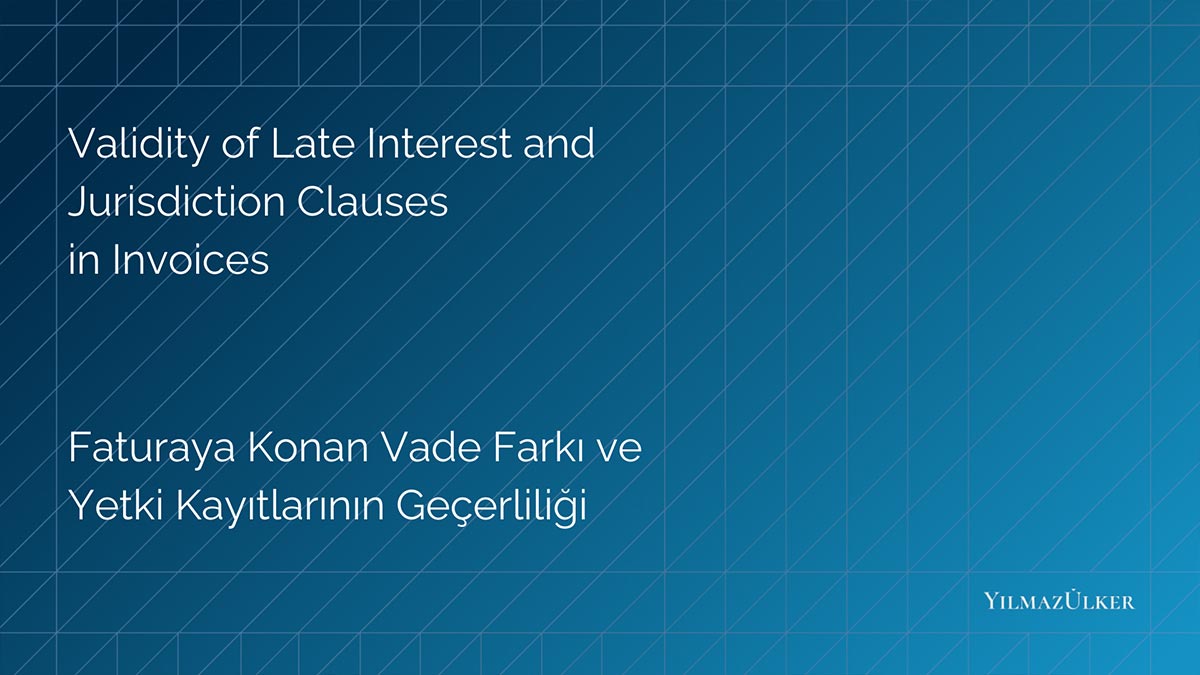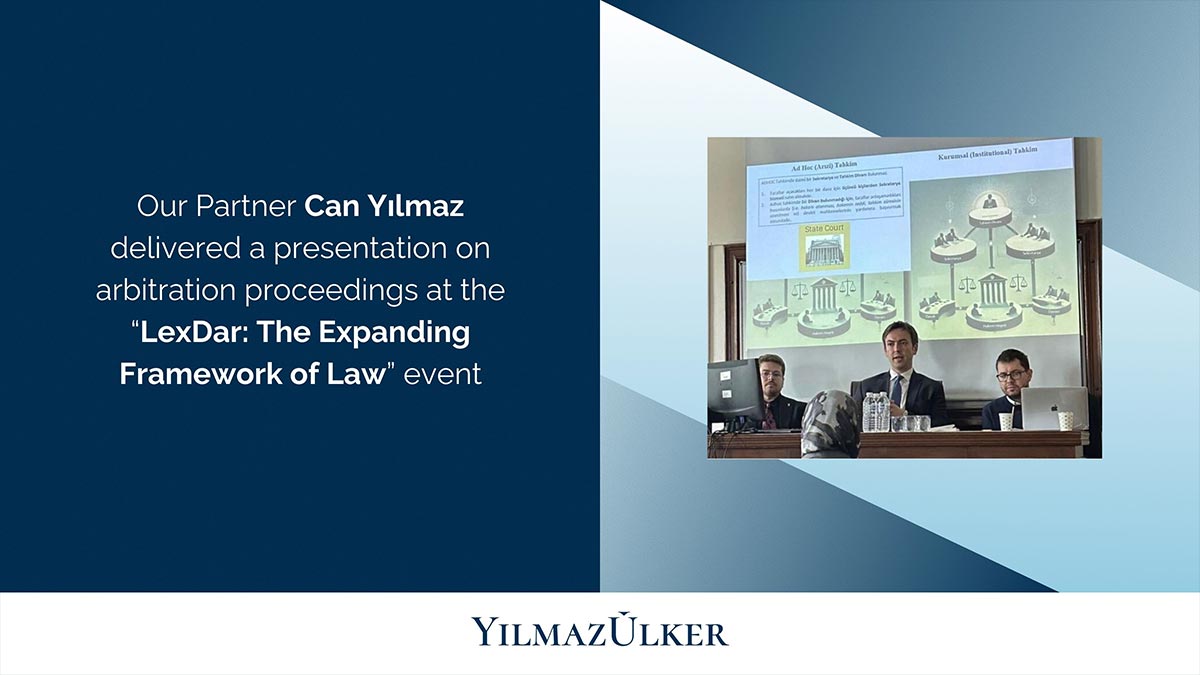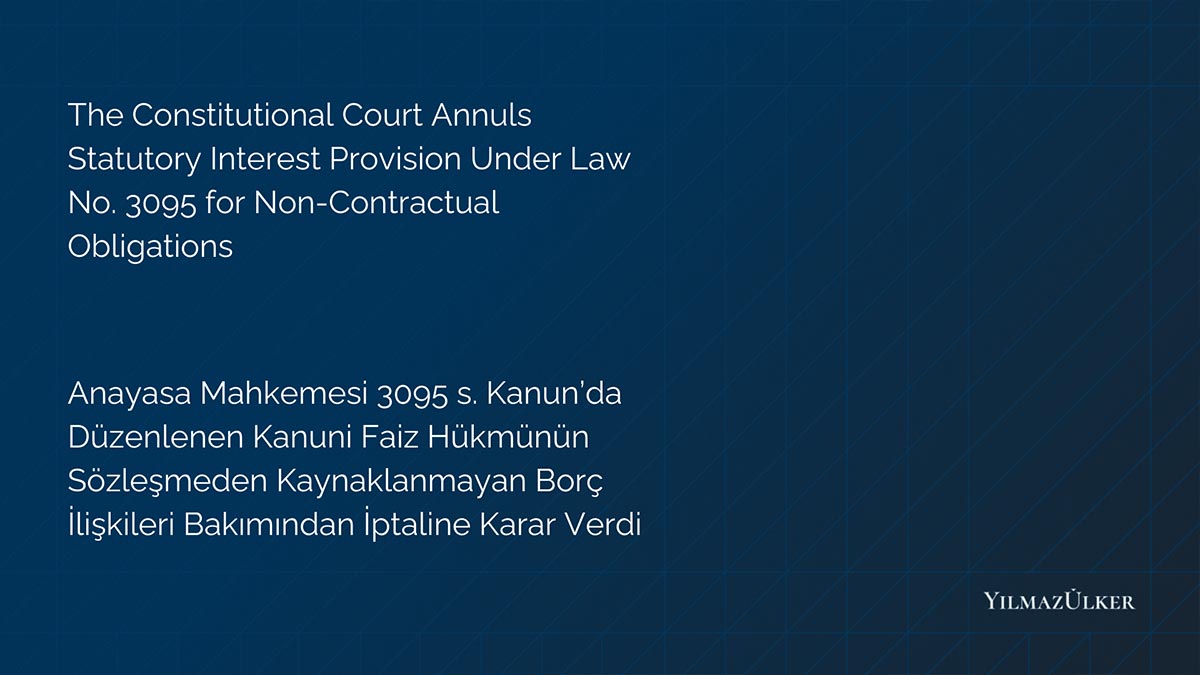News & Publications

Debt Collection in Türkiye for Foreigners
Debt Collection in Türkiye for Foreigners
The post-pandemic inflation, which has affected the global economy, intensified due to geopolitical risks such as the Russia-Ukraine war. In addition to the inflationary environment worldwide, Türkiye is experiencing a deeper impact from the financial crisis, exacerbated by a currency crisis. Such financial bottleneck directly affects import and export activities, leads to significant liquidity constraints and thus the debt is piling up. In 2023, the number of debt collection files initiated before Turkish debt collection offices increased by 59.4% compared to the previous year, reaching unprecedented levels [1]. These economic adversities also affect foreign companies operating or intending to operate within the Turkish market. In this context, legal remedies for debt collection in Türkiye are of significant importance to foreign creditors.
How Can Foreign Creditors Initiate Debt Collection Proceedings in Türkiye?
No minimum amount is required to initiate debt collection proceedings for debt recovery in Türkiye. However, considering the cost and time associated with a debt collection proceeding, it may prove beneficial to first issue a payment demand through public notaries and seek possibility of settlement for debts below a certain amount. This approach is crucial for expediting and minimizing the costs associated with debt collection. The method chosen should be tailored to the specific characteristics of each individual case to ensure the fastest and most cost-effective collection of the debt.
Types of Debt Collection Proceedings for Foreigners Under Turkish Law
There are two main types of debt collection proceedings under Turkish law: (i) debt collection proceeding based on a court judgment (ilamlı icra takibi) and (ii) debt collection proceeding without a court judgment. If there is a final and definitive court judgment ordering the payment of a debt, enforcement proceedings based on a judgment should be pursued; if there is no final and definitive court judgment, enforcement proceedings without a judgment (ilamsız icra takibi) should be preferred. Furthermore, if the receivable is secured with a pledge, the creditor is obliged to a initiate debt collection proceeding for foreclosure of the pledge. It is important to note that foreign court judgments can only be subject to enforcement proceedings in Türkiye after they have been recognized and enforced through the exequatur procedure.
Costs of Debt Collection Proceedings and Foreigner’s Security (Cauitio Judicatum Solvi)
A creditor initiating debt collection proceedings without a court judgment is obliged to pay a filing fee equal to 0.5% of the debt amount. Such filing fee does not exist in debt collection proceedings based on a court judgment. A fixed fee must be paid to initiate debt collection proceedings based on a court judgment. The fixed fee amount is TRY 450 (approx. USD 15) is sufficient as of the date of this article.
In addition, foreign creditors wishing to initiate legal proceedings (i.e. debt collection proceedings and court actions) in Türkiye are required to deposit a security deposit (Cauitio Judicatum Solvi). The amount of security determined by the relevant judiciary authority, usually between 15% and 40% of the claim amount. Foreigners may be exempt from such security, in case there is contractual, legal, or factual reciprocity between the foreigner creditor’s state and Türkiye.
Interim Attachment for Foreign Creditors
Debtors may engage in malicious attempts such as concealing or fleeing their assets to obstruct the collection of the debt. If these attempts are successful, efforts of creditors who have struggled for a long time to collect their debt would be in vain, and even if creditors prevail in court proceedings, they would be unable to collect their receivables. To prevent this, a creditor may seek interim attachment, which is regulated under the Turkish Enforcement and Bankruptcy Law as a provisional relief, which applies under certain conditions. This relief enables creditors to safeguard their matured and unsecured debts against potential malicious attempts by debtors as defined above. It is safe to say that interim attachment is the most effective legal measure to protect a creditors’ receivable until a final and definitive court judgment.
Certain conditions have to be met for interim attachment: (i) there must be a monetary receivable; (ii) the receivable must not be secured with a pledge; (iii) the receivable must be due and payable; (iv) in case the receivable is undue, the debtor should either have no fixed place of residence or engage in fraudulent activities such as concealing or fleeing assets to evade its obligations.
In terms of weight of evidence necessary, interim attachment proceedings are distinct from ordinary court proceedings. In a lawsuit, unless explicitly provided in the law or necessitated by the nature of the case, claimant must fully prove its case whereas whereas prima facie evidence is deemed sufficient to convince the court to issue interim attachment. In this respect, the likelihood of the alleged event being true should outweigh the likelihood of it being untrue [2]. Prima facie evidence must be established as per the details and specific circumstances of each case.
If the interim attachment request is accepted by the court, a security must be deposited to proceed with executing the interim attachment. In practice, the security amount determined by the court is generally between 15% and 40% of the receivable amount. The security can be deposited in cash or as a bank guarantee letter.
Bibliography
- [1] https://www.ekonomim.com/ekonomik-veriler/icra-sayisi-patladi-bir-yilda-yuzde-594-artis-haberi-721841
- [2] Başözen, Ahmet. “Güncel Yargıtay Kararları Işığında İhtiyati Tedbirlerde ‘Yaklaşık İspat’ ve ‘İhtimal’ Kavramı”. Dokuz Eylül Üniversitesi Hukuk Fakültesi Dergisi, C.16, (2014). S.653-694.
The above information reflects the general assessments of YılmazÜlker Attorney Partnership ("YılmazÜlker") regarding the subject matter and do not constitute legal opinion or legal consultancy services. Before taking any action based on the matters stated herein, it is recommended to seek professional legal advice by considering the specific circumstances of the case. YılmazÜlker shall not be held liable for any consequences arising from or in connection with the content of this document.






#yilmazulker #debtcollection #foreigncreditors #turkishlaw #publication